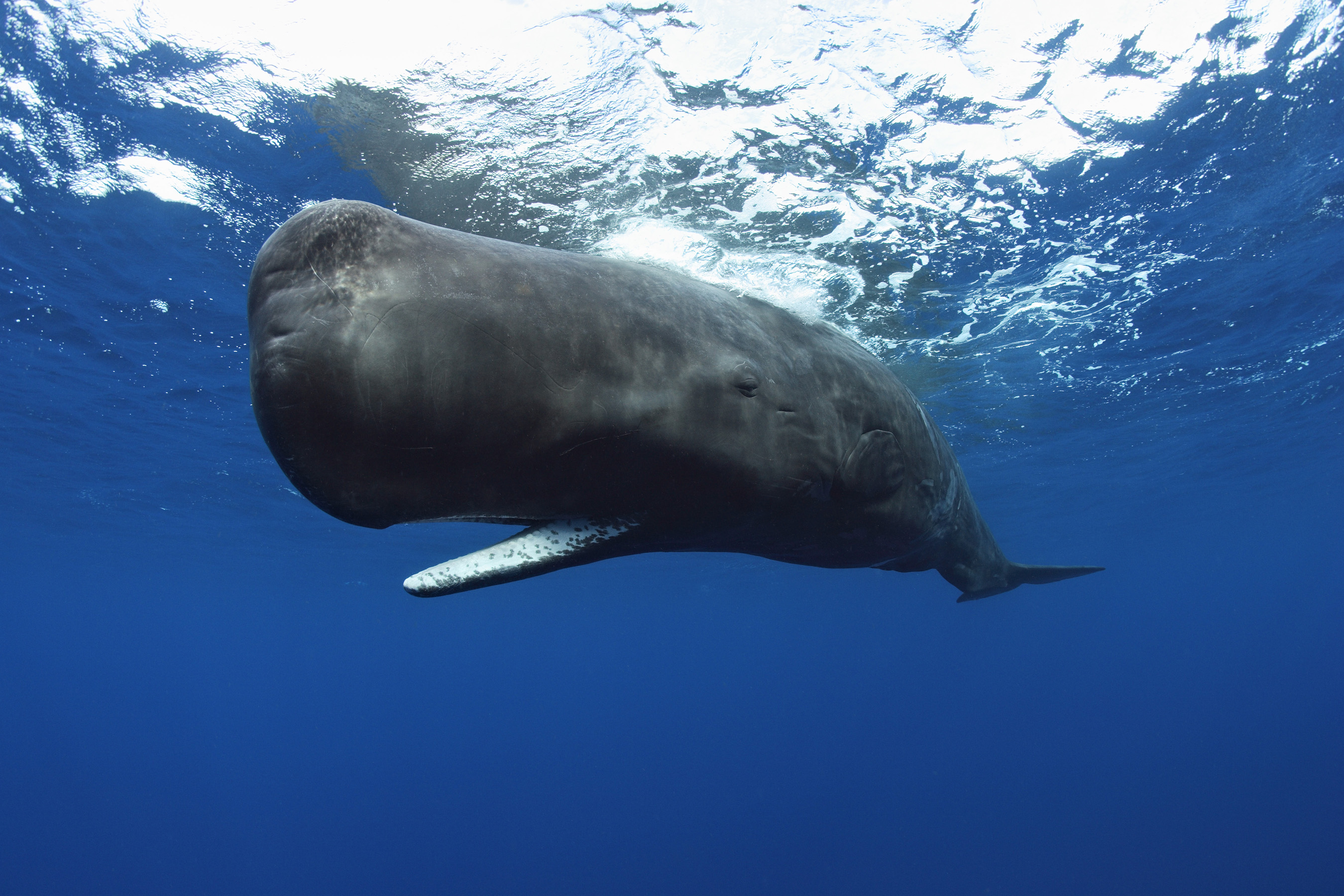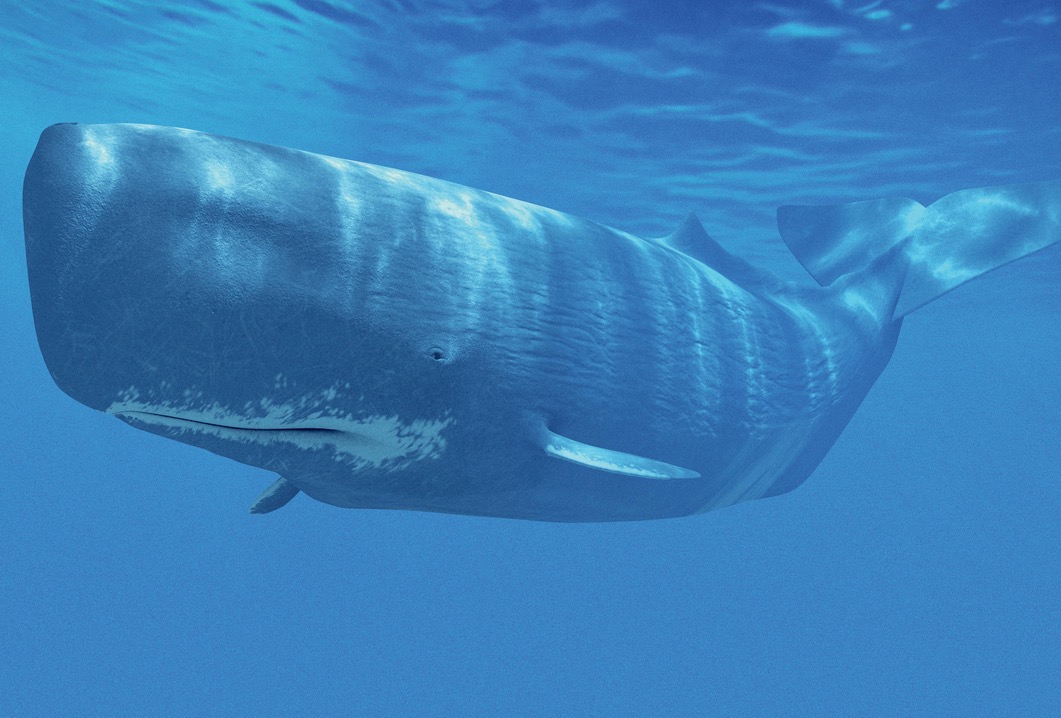Sperm whales stop all non essential bodily functions while diving for prey

Sperm Whales: The Masters of Deep Dives

When it comes to the incredible world of marine mammals, the sperm whale stands out as one of the most fascinating creatures. Known for their immense size and unique habits, these whales never cease to surprise scientists and nature enthusiasts alike. One of the intriguing facts about sperm whales is their ability to stop all non-essential bodily functions while diving for prey.
Contrary to humans and many other animals, who rely on a constant supply of oxygen to sustain themselves, sperm whales employ a remarkable adaptation strategy. In order to reach the depths of the ocean where their primary food source, giant squid, dwells, they are capable of holding their breath for exceptionally long periods. These majestic giants can descend to incredible depths, plunging down to more than 1,000 meters in search of a satisfying meal.

To achieve these impressive dives, sperm whales undergo a series of captivating physiological changes. As they prepare to embark on their underwater exploration, these marine maestros shut down almost all non-essential bodily functions. This includes minimizing the flow of oxygen to their muscles, reducing their heart rate significantly, and rerouting the limited supply of oxygen to vital organs such as the brain.
By doing so, sperm whales can conserve energy and extend their diving duration. These deep-sea expeditions can last for up to 90 minutes, although typical dives range between 45 and 60 minutes. During their descent, the whales engage in echo-location, a fascinating ability that allows them to navigate through the dark depths, locate their prey, and communicate with other members of their pod.
However, the remarkable adaptations of the sperm whale do not stop there. As they ascend from the depths, they experience an intriguing phenomenon called the “whale’s yawn.” This phenomenon occurs when the whale returns to the surface, expelling the stale air from its lungs and inhaling a fresh supply of oxygen. This process causes a distinct plume of water vapor, which is often visible from a distance, adding to the awe-inspiring nature of these majestic creatures.
Sperm whales are not only a marvel to behold, but they also play a vital role in maintaining the health of our oceans. The feces, known as “whale poop,” released by these giants is rich in iron, a nutrient essential for the growth of marine phytoplankton. This microscopic plant life absorbs carbon dioxide from the atmosphere, thus acting as a natural carbon sink. By fertilizing the oceans with iron, sperm whales actively contribute to offsetting carbon emissions and promoting a healthier planet.
In conclusion, the ability of sperm whales to halt non-essential bodily functions while diving for prey is truly astounding. These creatures have developed intricate adaptations that allow them to explore the deep ocean waters, hunting for sustenance in the most extraordinary of ways. Their mastery of deep dives and the important role they play in oceanic ecosystems underline the significance of protecting and studying these magnificent species.
Sources:
Related Posts
Quick Links
Legal Stuff

